Mountaire Farms Worker Seeks to Hold Union Accountable for Illegal Surveillance
"This sort of surveillance is on a union opponent has got to be illegal and has to be stopped and we’re going to continue to fight for him all the way.”
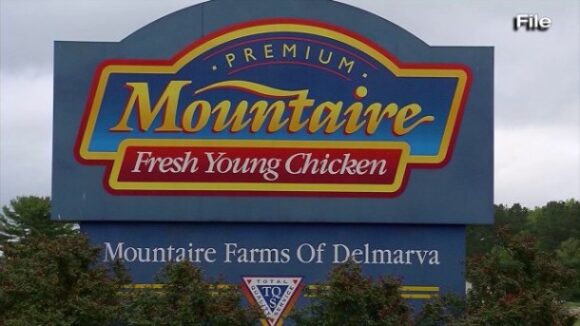
"This sort of surveillance is on a union opponent has got to be illegal and has to be stopped and we’re going to continue to fight for him all the way.”
Delaware Mountaire Farms employee Oscar Cruz Sosa is charging the UFCW Local 27 after officials illegally surveilled him while he was helping his coworkers exercise their right to vote out the union.
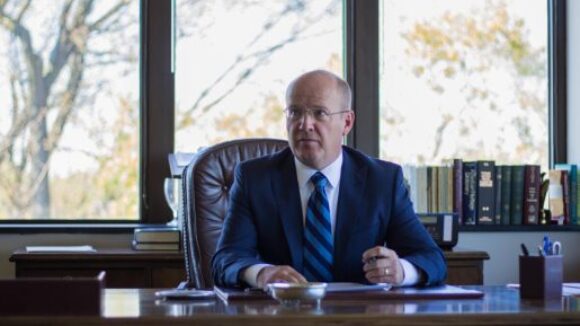
“It’s long past time the NLRB put employee free choice back at the center of American labor law and eliminated the numerous ‘bars’ and doctrines that block workers from exercising their right to removing union officials they oppose,” National Right…
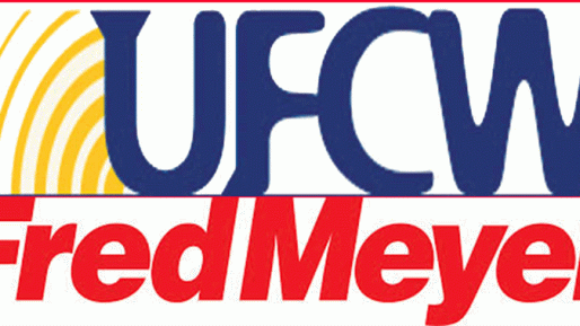
From the National Right to Work Legal Defense Foundation: Local Grocery Union Faces Federal Charges for Retaliatory Forced Dues Confiscations Case underscores need for Right to Work protections for workers Burlington, WA (November 12, 2014) – A local Fred…
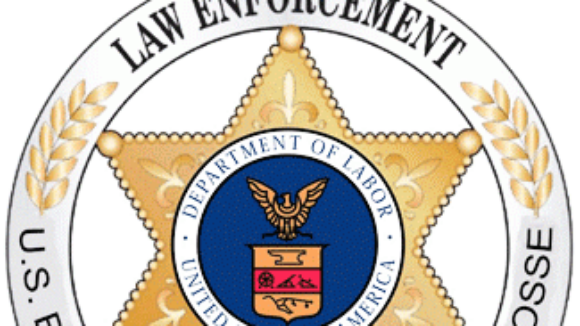
As the National Right to Work Committee warned in emails to its members and in this video that Solicitor of Labor M. Patricia Smith would approve deputizing union organizers with Obama…
Like many other top officials of national, state and local unions, Joe Hansen of the United Food and Commercial Workers (UFCW/AFL-CIO) union lavishly spent rank-and-file employees’ forced union dues and fees to lobby for passage of the so-called Affordable Care…
With every passing day, it seems, union bosses are decrying more loudly the signal legislative achievement of the President they played a critical role in electing in 2008 and reelecting in 2012. In a commentary for Forbes this week (see…
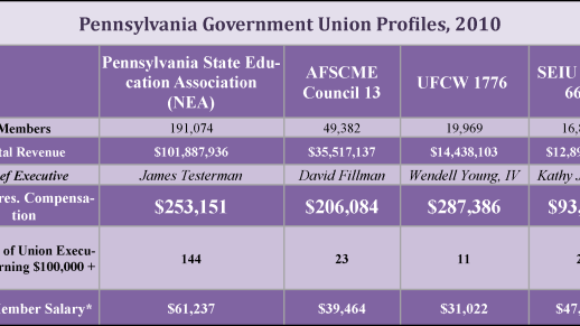
Forced-dues continue to fill the coffers of unions, as well as, union presidents' and politicians' pockets according to this recent study by the Commonwealth Foundation: Government Unions and Forced Dues Almost half of government workers in Pennsylvania are union members, compared to 9.3 percent in the private sector. Pennsylvania is a forced union state, meaning that workers can be forced to join a union or pay a [so-called] "fair share fee" just to keep their job. Most government units in Pennsylvania are "agency shops," with a specified union to which workers must pay a fee. When state and local governments automatically deduct dues and fair share fees from government workers' paychecks—as is the practice in Pennsylvania—employees have little or no say in how their money is used. Union Bosses Union bosses collect hefty salaries derived from member dues and fair share fees. In most cases, the salaries are several times the average union member's annual pay. While acknowledging that budgets were tight, AFSCME Council 13 President David Fillman got a 6 percent raise in 2010, making his salary higher than Gov. Tom Corbett's. Dues and fees often go towards expensive conferences, outings and junkets. For example, in 2009-10 the Pennsylvania State Education Association—the state's largest public sector union—spent: More than $250,000 on a board of directors retreat in Gettysburg. More than $89,000 for a "political institution meeting" at the Radisson Penn Harris in Camp Hill, Pa. $20,000 for advertising in the Pittsburgh Steelers Yearbook. Almost $5,900 at Kimberton Golf Club and more than $5,100 at Concord Country Club in Chadd's Ford. Political Activity and Lobbying

Forced-dues continue to fill the coffers of unions, as well as, union presidents' and politicians' pockets according to this recent study by the Commonwealth Foundation: Government Unions and Forced Dues Almost half of government workers in Pennsylvania are union members, compared to 9.3 percent in the private sector. Pennsylvania is a forced union state, meaning that workers can be forced to join a union or pay a [so-called] "fair share fee" just to keep their job. Most government units in Pennsylvania are "agency shops," with a specified union to which workers must pay a fee. When state and local governments automatically deduct dues and fair share fees from government workers' paychecks—as is the practice in Pennsylvania—employees have little or no say in how their money is used. Union Bosses Union bosses collect hefty salaries derived from member dues and fair share fees. In most cases, the salaries are several times the average union member's annual pay. While acknowledging that budgets were tight, AFSCME Council 13 President David Fillman got a 6 percent raise in 2010, making his salary higher than Gov. Tom Corbett's. Dues and fees often go towards expensive conferences, outings and junkets. For example, in 2009-10 the Pennsylvania State Education Association—the state's largest public sector union—spent: More than $250,000 on a board of directors retreat in Gettysburg. More than $89,000 for a "political institution meeting" at the Radisson Penn Harris in Camp Hill, Pa. $20,000 for advertising in the Pittsburgh Steelers Yearbook. Almost $5,900 at Kimberton Golf Club and more than $5,100 at Concord Country Club in Chadd's Ford. Political Activity and Lobbying